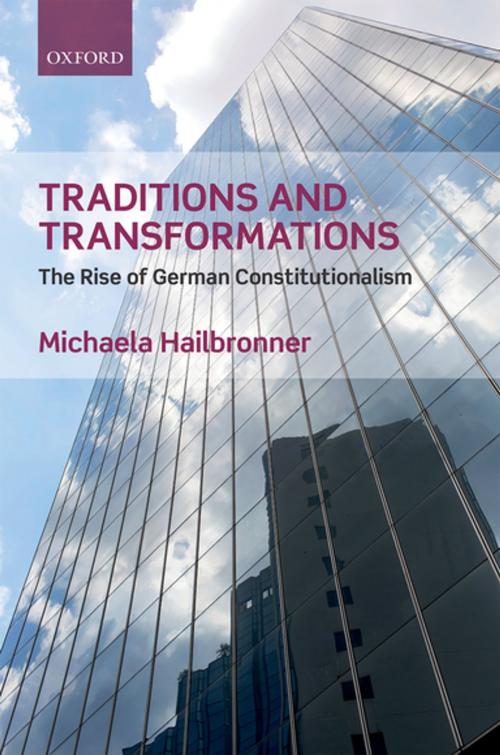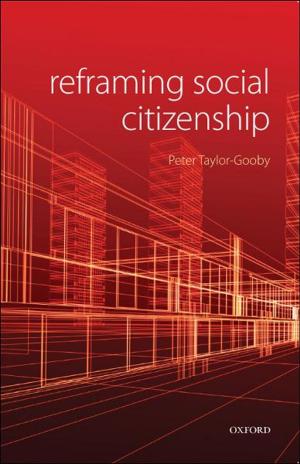Traditions and Transformations
The Rise of German Constitutionalism
Nonfiction, Reference & Language, Law, Constitutional, Social & Cultural Studies, Political Science| Author: | Michaela Hailbronner | ISBN: | 9780191054389 |
| Publisher: | OUP Oxford | Publication: | October 29, 2015 |
| Imprint: | OUP Oxford | Language: | English |
| Author: | Michaela Hailbronner |
| ISBN: | 9780191054389 |
| Publisher: | OUP Oxford |
| Publication: | October 29, 2015 |
| Imprint: | OUP Oxford |
| Language: | English |
German constitutionalism has gained a central place in the global comparative debate, but what underpins it remains imperfectly understood. Its distinctive understanding of the rule of law and the widespread support for its powerful Constitutional Court are typically explains in one of two ways: either as a story of change in a reaction to National Socialism or as the continuation of an older nineteenth-century line of constitutional thought that emphasizes the function of constitutional law as a constraint on state power. But while both narratives account for some important features, their explanatory value is ultimately overrated. This book adopts a broader comparative perspective to understand the rise of the German Constitutional Court. It interprets the particular features of German constitutional jurisprudence and the Court's strength as a reconciliation of two different legal paradigms: first, a hierarchical legal culture as described by Mirjan Damaska, building on Max Weber, as opposed to a more co-ordinated understanding of legal authority such as prevails in the United States and secondly, a more recent paradigm of transformative constitutionalism, which is most often associated with countries like South Africa and India. Using post-war legal history and sociological and empirical research in addition to case law, this book demonstrates how German developments reflect the frequently conflicting demands of these two legal paradigms - yielding an idiosyncratic synthesis in Value Formalism, a specific type of constitutional reasoning, at once pragmatic, open, formalist, and technical. Value Formalism however, also comes with serious problems, such as a lack of self-reflection in the Court's jurisprudence and the closure of constitutional discourse towards laymen.
German constitutionalism has gained a central place in the global comparative debate, but what underpins it remains imperfectly understood. Its distinctive understanding of the rule of law and the widespread support for its powerful Constitutional Court are typically explains in one of two ways: either as a story of change in a reaction to National Socialism or as the continuation of an older nineteenth-century line of constitutional thought that emphasizes the function of constitutional law as a constraint on state power. But while both narratives account for some important features, their explanatory value is ultimately overrated. This book adopts a broader comparative perspective to understand the rise of the German Constitutional Court. It interprets the particular features of German constitutional jurisprudence and the Court's strength as a reconciliation of two different legal paradigms: first, a hierarchical legal culture as described by Mirjan Damaska, building on Max Weber, as opposed to a more co-ordinated understanding of legal authority such as prevails in the United States and secondly, a more recent paradigm of transformative constitutionalism, which is most often associated with countries like South Africa and India. Using post-war legal history and sociological and empirical research in addition to case law, this book demonstrates how German developments reflect the frequently conflicting demands of these two legal paradigms - yielding an idiosyncratic synthesis in Value Formalism, a specific type of constitutional reasoning, at once pragmatic, open, formalist, and technical. Value Formalism however, also comes with serious problems, such as a lack of self-reflection in the Court's jurisprudence and the closure of constitutional discourse towards laymen.















